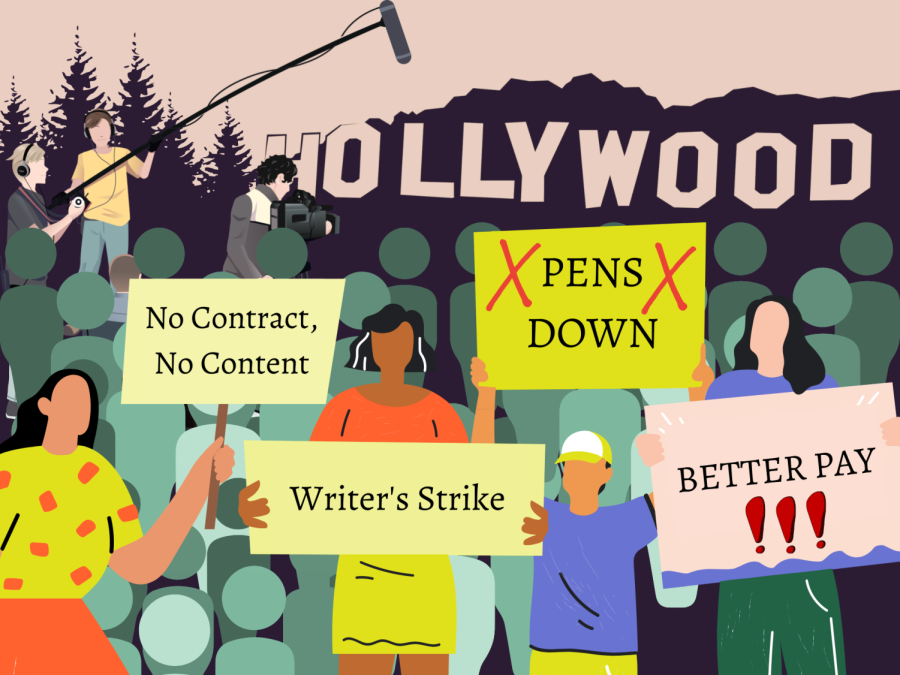Writers Guild of America members strike for better labor conditions
May 15, 2023
The Writers’ Guild of America went on strike on May 2, raising concerns in Hollywood as 11,500 film and television writers put down their pens. It marks the first strike of its kind in Hollywood in over 15 years.
The WGA has demanded a higher minimum wage, a shortening of exclusive contracts and regulation regarding artificial intelligence so studios cannot use it to undermine their work. The strike has caused late-night television shows, like “The Tonight Show” on NBC and “Jimmy Kimmel Live” on ABC, to play reruns since May 2.
Television writers carry a massive workload in Hollywood. They are responsible for writing scripts that famous actors turn into classic moments and communicating how lines should be pronounced to producers.
Companies like Universal Corp., Paramount Group Inc., Netflix Inc., Amazon.com Inc. and Apple Inc. are already feeling the heat. The trickle-down effect from the strike could also jeopardize the livelihoods of nonwriter production staff members for the shows.
“It affects all the incredible non-writing staff on these shows,” Seth Meyers, host of “Late Night With Seth Meyers” on NBC, told viewers. “And it would really be a miserable thing for people to have to go through, especially considering we’re on the heels of that awful pandemic.”
Unlike the 2007 writers’ strike, the current strike is not feared to have immediate effects on media production. Since many television shows are currently wrapping up production, the strike will also have little direct impact on the marketplace.
The primary concern, however, is if its duration will run longer than expected. The strike of 2007 lasted 100 days, threatening television networks as cable was the nation’s main method of consuming Hollywood-written entertainment.
The writers’ strike of 2007 halted many notable television shows like “30 Rock,” “The Big Bang Theory” and “Family Guy.” The writers’ absence heavily affected programming due to shows being canceled or pushed back, and tensions were high as hosts like Jay Leno were left to write their own monologues.
Television is not the final resort for viewers this year — streaming services draw in millions of viewers per week, and more households “cut the cord” and opt out of cable service subscriptions every year.
Streaming platforms have expanded libraries of content that networks and theaters can’t possess due to their reliance on live programming and up-to-date promotion.
The Alliance of Motion Picture and Television Producers reacted to writers taking time off by proposing “generous increases in compensation for writers as well as improvements in streaming residuals.”
From the alliance’s response, it appears the strike will not greatly hurt the group’s content.
The logistics of a potential deal between the WGA and corporations includes writers either receiving a collective $429 million per year or individually about $86 million per year, per the AMPTP’s latest offer.
Money will be the ultimate deciding factor of whether writers will return.








